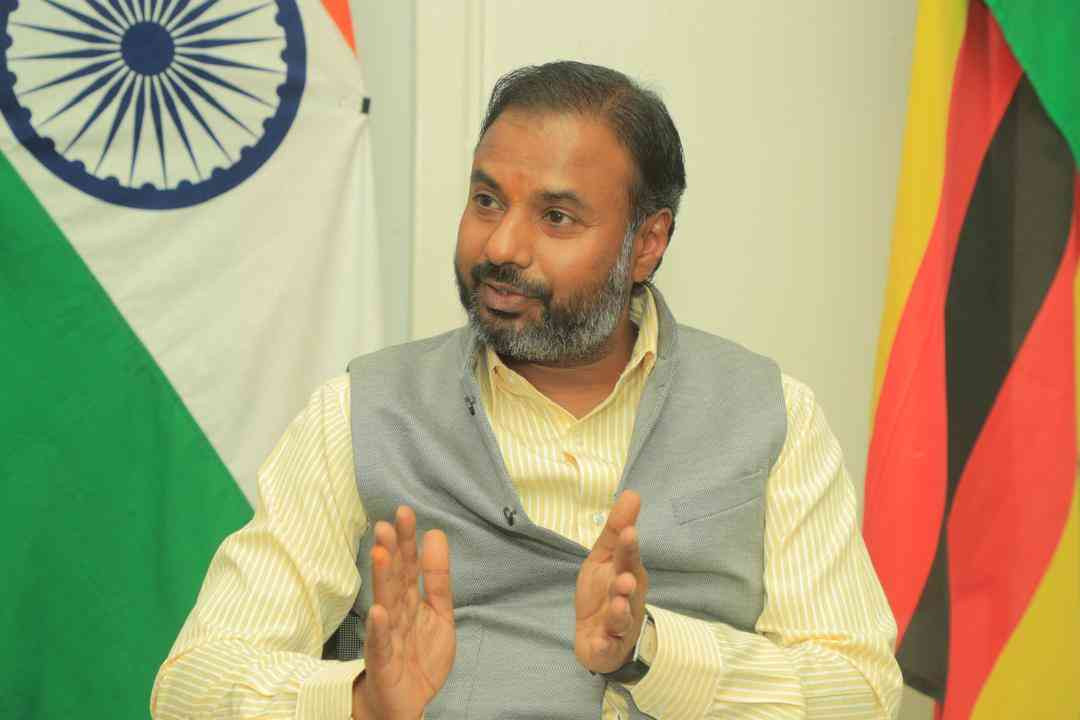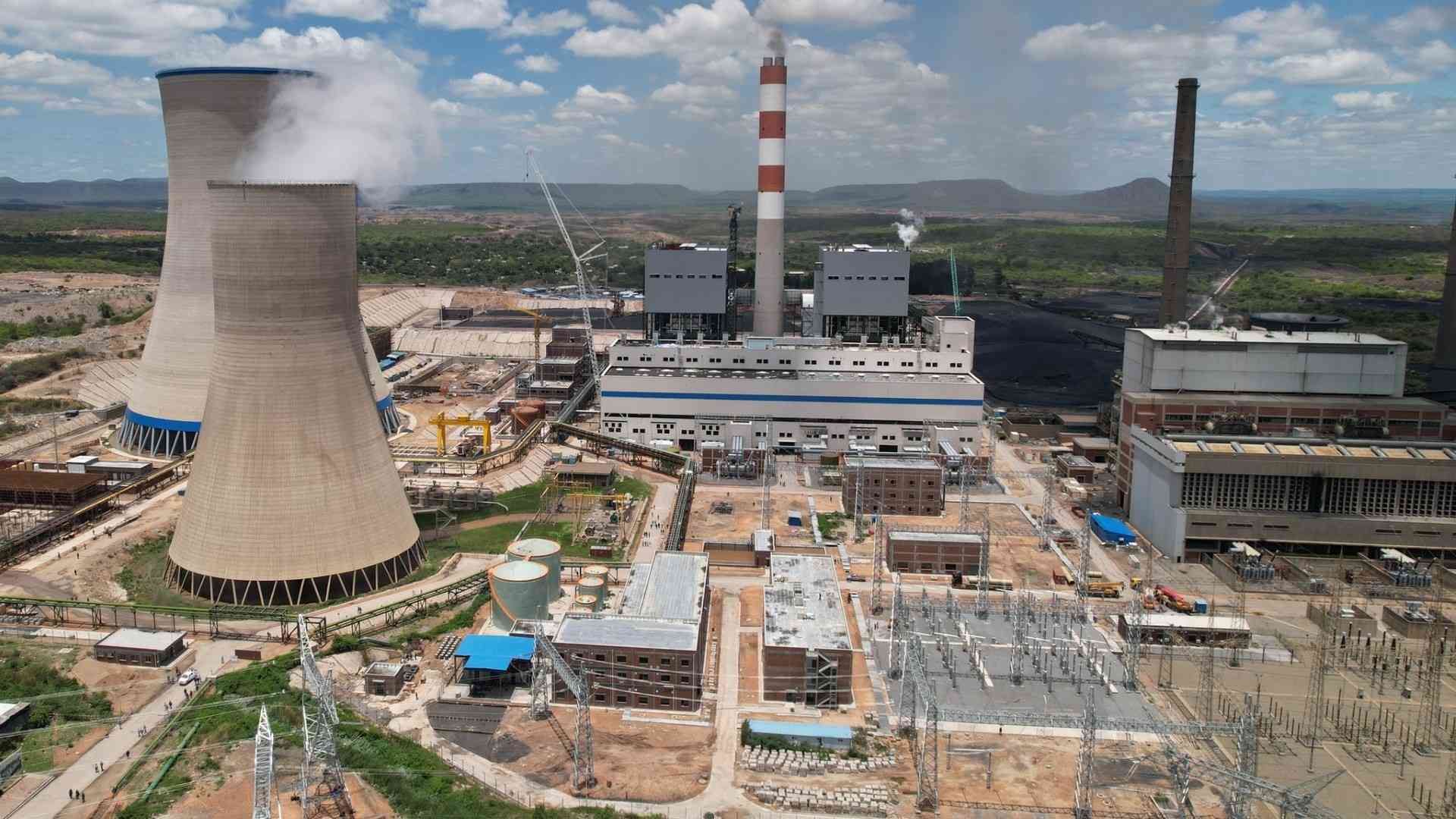
India and Zimbabwe are entering a pivotal new phase in their diplomatic and economic relations, marked by a string of high-profile deals in energy, defence, and infrastructure. In this exclusive interview with the Zimbabwe Independent, Indian ambassador to Zimbabwe, Bramha Kumar, says New Delhi is backing its words with action — from multi-million dollar investments in power generation and railway equipment to renewed cooperation in wildlife conservation and technology transfer. After his recent visit to India, our group digital and online editor Silence Mugadzaweta (SM) sat down with the envoy to unpack what this new chapter means for both nations. Below are excerpts from the wide-ranging conversation:
SM: Are there any deals which Indian companies are currently pursuing in Zimbabwe?
BK: Notable among them is the contract between RITES, a public sector Indian company, and the National Railways of Zimbabwe (NRZ), for the supply of nine locomotives and 315 wagons, to be financed through Africa Export Import Bank (Afreximbank). Another key development is Jindal Power’s signing of two investment agreements with Zesa Holdings in August 2024. These deals aim to boost electricity production at Hwange Power Station by 2 000 megawatts over the coming years.
I am confident that the successful implementation of these agreements will encourage more Indian companies to explore opportunities in Zimbabwe. To attract Indian investment, the Government of Zimbabwe should present a clear list of investible projects across sectors, along with necessary incentives, fast-track approvals, (have) a supportive business environment, reliable power supply, and guarantees for investor safety — including favourable exit clauses. The Government of India remains committed to supporting Zimbabwe’s development projects and to contributing towards the institutional frameworks needed for further economic growth.
SM: How can Indian businesses engage more actively in Zimbabwe’s economy? What support does the Indian government provide to encourage investment in the region?
BK: The Indian private sector has already invested approximately between US$600 million and US$650 million in Zimbabwe. These investments span sectors such as food processing, beverages, mining, textiles, agricultural equipment, and polymers — and the trend is upward. Indian companies in Zimbabwe have created around 5 000 direct jobs and nearly 10 000 indirect jobs. The number of Indian firms operating here is steadily growing. Increased investments will directly benefit Zimbabwean youths, who will receive training and employment from Indian enterprises.
SM: What measures are being taken to enhance trade relations between India and Zimbabwe?
BK: Over the past few years, bilateral trade has ranged between US$150 million and US$200 million. In addition, businesses from both countries engage via third party markets such as South Africa, Mozambique, the United Arab Emirates, and Hong Kong. Zimbabwe’s major exports to India include iron and steel, tobacco and tobacco products, tanning or dyeing extracts, dyes and pigments, paints, inks, pearls and gemstones, coffee, tea, and spices.
- Mavhunga puts DeMbare into Chibuku quarterfinals
- Bulls to charge into Zimbabwe gold stocks
- Ndiraya concerned as goals dry up
- Letters: How solar power is transforming African farms
Keep Reading
Zimbabwe’s key imports from India are pharmaceuticals, boilers, machinery, mechanical appliances, plastics, vehicles and auto parts, electrical machinery, and textiles. Despite our close ties, the current trade volumes don’t reflect the full potential of our relationship.
SM: How can both nations leverage their strengths to foster mutual growth?
BK: I am working to connect the Confederation of Indian Industry (CII) with Zimbabwean authorities through CII-led Centres of Excellence. These centres aim to build capacity in both society and industry by developing skilled professionals in cutting-edge technologies.
They offer tailored advisory services to public and private organisations — including small and medium enterprises, start-ups, government departments, financial institutions, educational bodies, and non-governmental organisations. I welcome more suggestions from relevant Zimbabwean agencies to strengthen these collaborations.
SM: Are there any other developments that you may want to share?
BK: Yes. In a major milestone this year, India and Zimbabwe signed a Memorandum of Understanding on defence cooperation. This took place during Zimbabwe’s Defence Minister’s visit to India for the Aero India — 2025 event in February. Following that, an Indian defence delegation visited Zimbabwe in March to assess its needs for defence force modernisation and defence production. We also held the maiden India-Zimbabwe Defence Expo in hybrid format — five Indian companies participated physically, while 11 others joined virtually. I am also keen to expand our cooperation into environmental and wildlife protection. Sharing expertise in agriculture, climate adaptation, habitat protection, and using AI to mitigate human-wildlife conflict can benefit both countries.
SM: What initiatives are in place for knowledge transfer and training programmes in Zimbabwe, particularly in technology and agriculture?
BK: Capacity building is a major pillar of India’s development partnership with Zimbabwe — spanning both civilian and defence sectors. India supports Zimbabwe by offering modern technical training and skills development, especially for youths. Around 5 000 Zimbabwean students are currently enrolled in Indian colleges and universities. We have also established 17 Indo-Zim Technology Centres in Zimbabwe through a US$5 million grant — a project inaugurated by the late President Robert Mugabe in 2008. These centres were upgraded in Phase II with new machinery worth US$2,93 million, completed in 2023. Additionally, India offers more than 250 scholarships to Zimbabwe under the Indian Technical and Economic Cooperation (ITEC) programme. Launched in 1964, ITEC supports South-South cooperation by sharing India’s expertise with friendly nations. Short-term training under this programme can greatly benefit those who are unemployed or have left school. We are ready to share more experiences with Zimbabwe.
SM: How important is cultural exchange in strengthening ties between India and Zimbabwe?
BK: Cultural exchange is an essential component of our long-standing people-to-people relations. Zimbabwe regularly participates in the annual Surajkund International Craft Fair in India, showcasing its rich cultural heritage. In return, Indian cultural troupes supported by the Indian Council for Cultural Relations frequently visit Zimbabwe and perform across the country. We look forward to signing a cultural exchange programme that will provide an institutional framework to facilitate even more exchanges and collaborative initiatives.
SM: In the context of India’s engagement with African nations, how does India view its role in promoting stability and development in the region, particularly regarding common security threats?
BK: India is a committed development partner for Africa. We support the continent through humanitarian aid, grant projects, technical assistance, scholarships, and infrastructure initiatives under the ITEC programme and various lines of credit.
Since the first India-Africa Forum Summit in 2008, our cooperation has steadily grown. One important example is the Pan-African e-Network (PAeN) project on Tele-Education and Tele-Medicine, now handed over to the African Union since 2017. We also share deep historical ties and a sizeable Indian diaspora across the continent. India will continue to support Africa under the framework of the Global South.
SM: Can you elaborate on recent developments in bilateral relations between India and Zimbabwe? What key milestones have been achieved in the last few years?
BK: India is keen to see Zimbabwe join the international Coalition for Disaster Resilient Infrastructure. We are ready to assist with building resilience and sharing our best practices in climate-related efforts. Under the India-UN Development Partnership Fund, a US$1 million grant was allocated in 2021 to support climate-resilient agriculture in Chiredzi and Mangwe districts. This project has been successfully completed and delivered. India has also invited Zimbabwe to join the International Big Cat Alliance — an India-led initiative aimed at protecting big cats and their habitats through experience-sharing, conservation capacity building, and the use of modern technologies to reduce human-wildlife conflicts.










